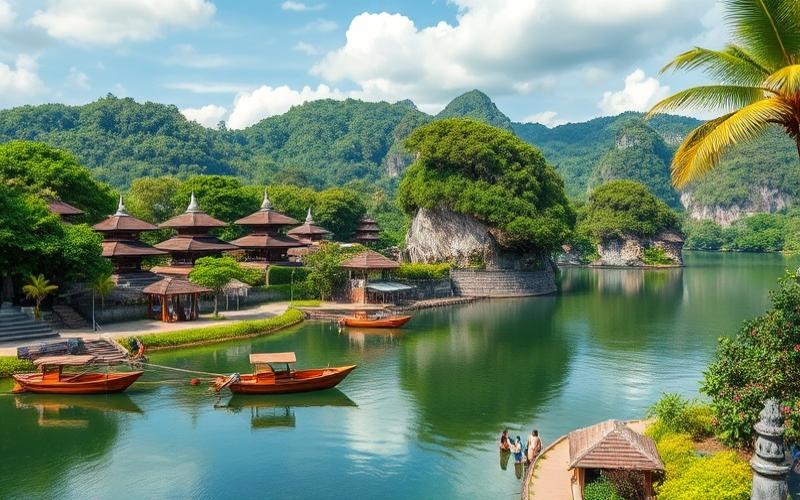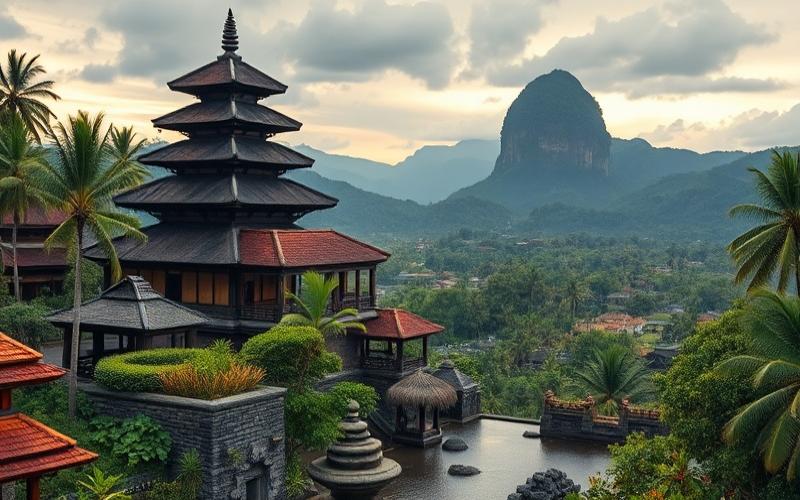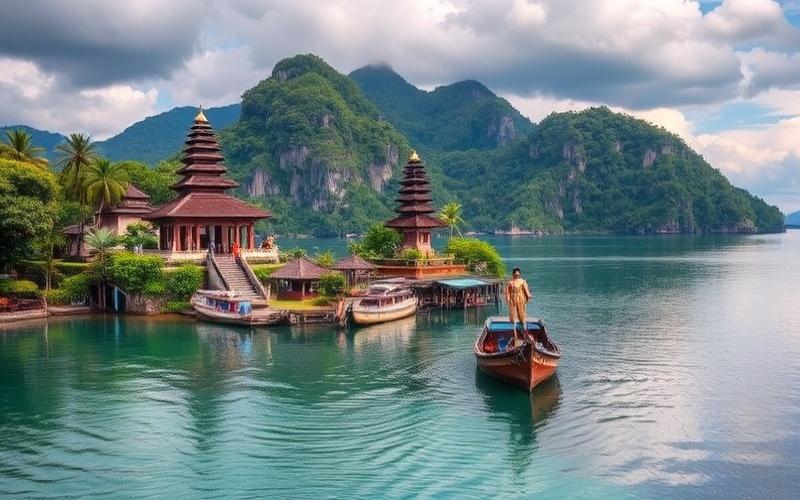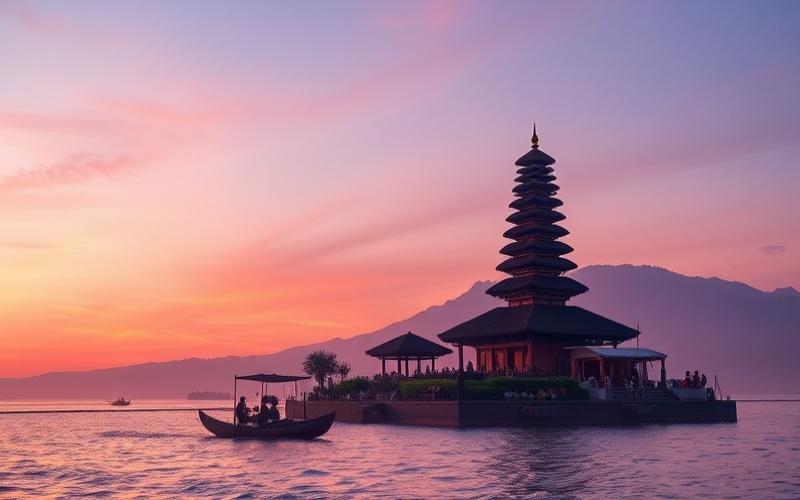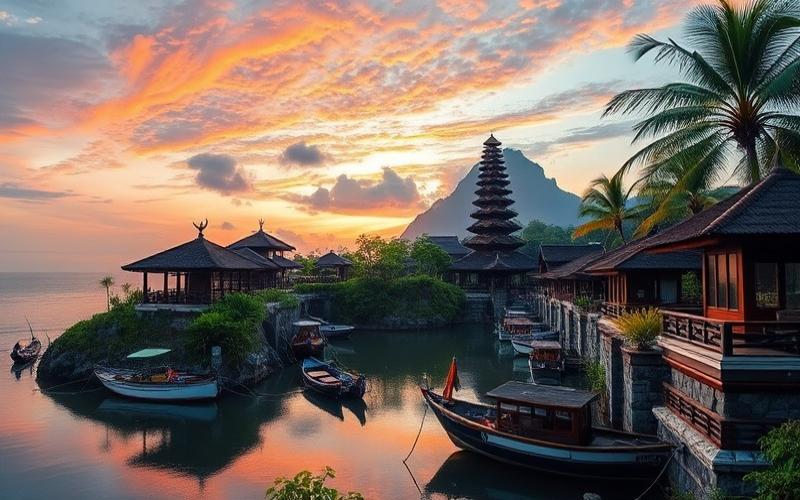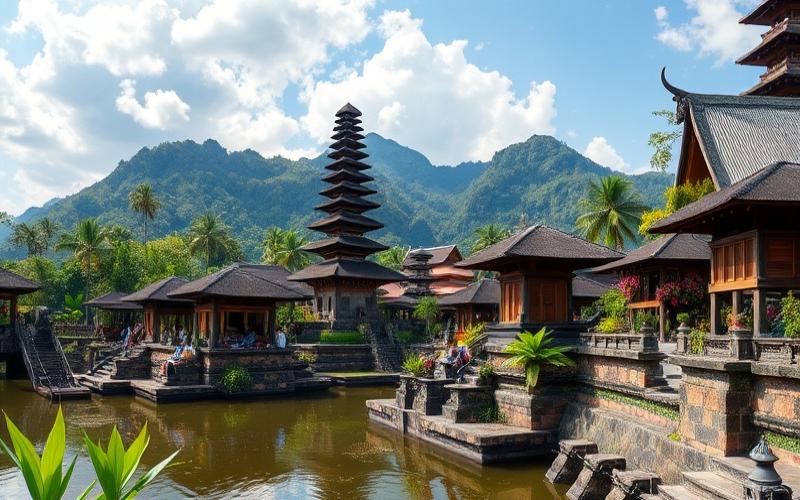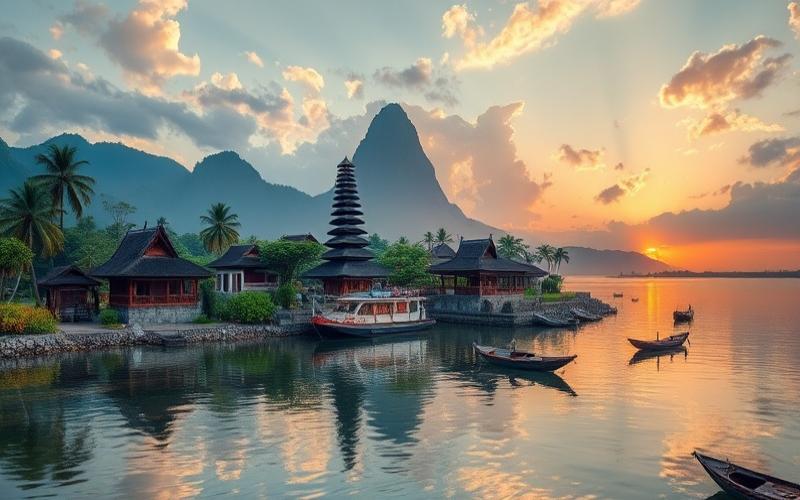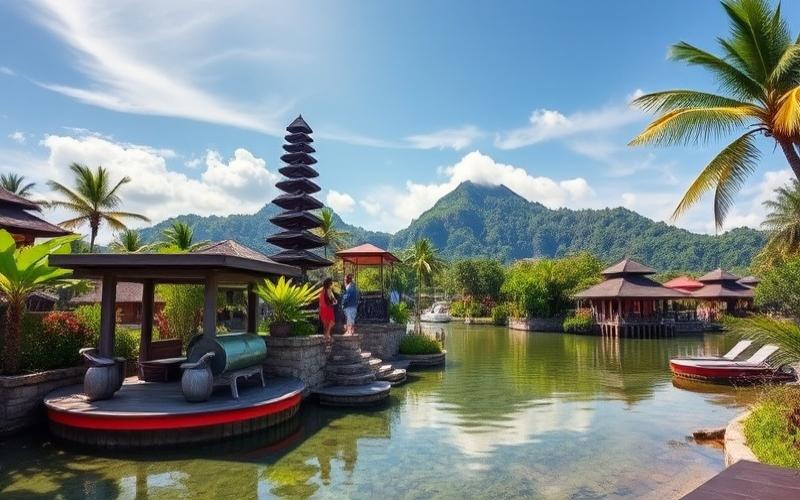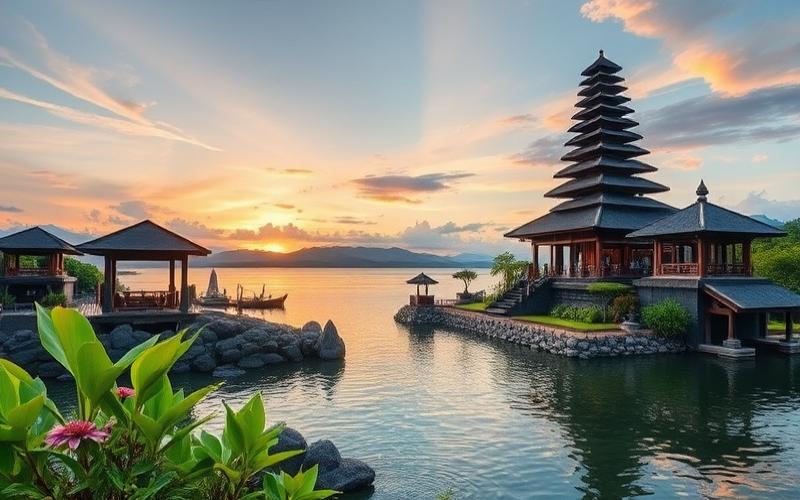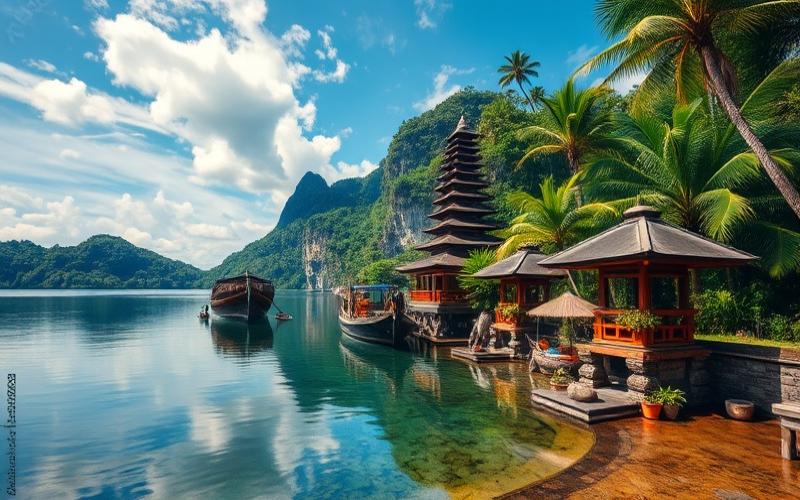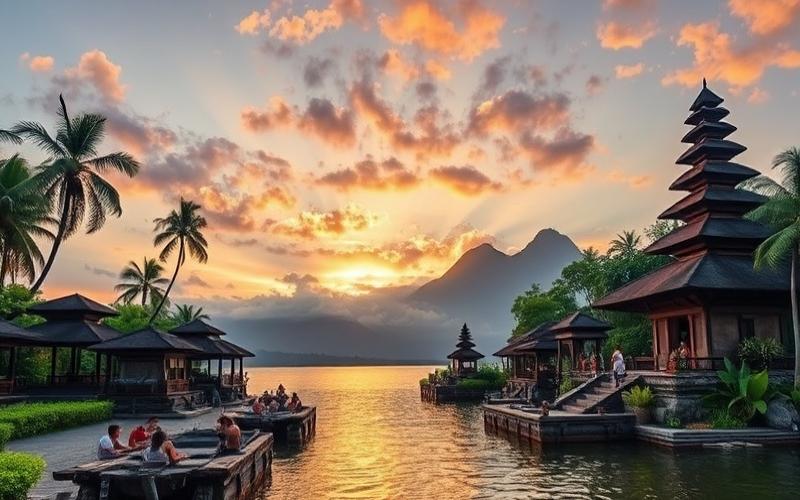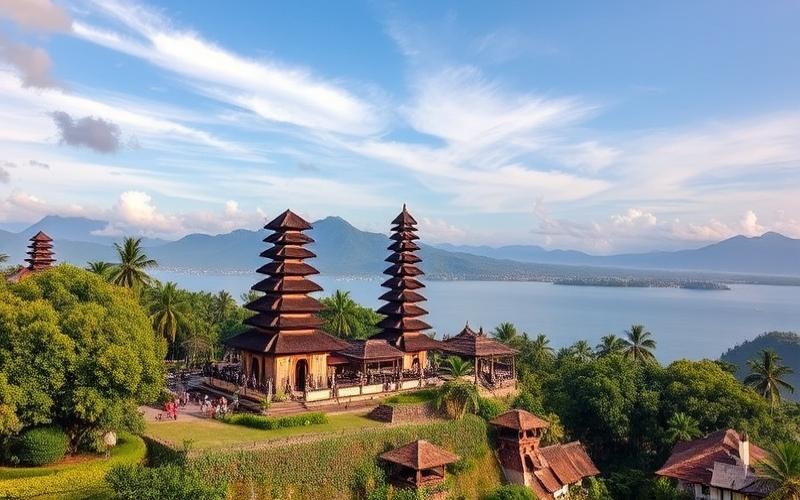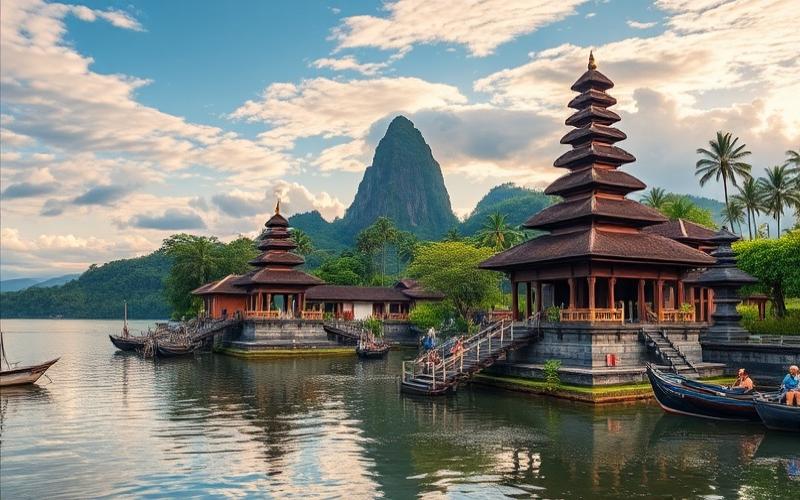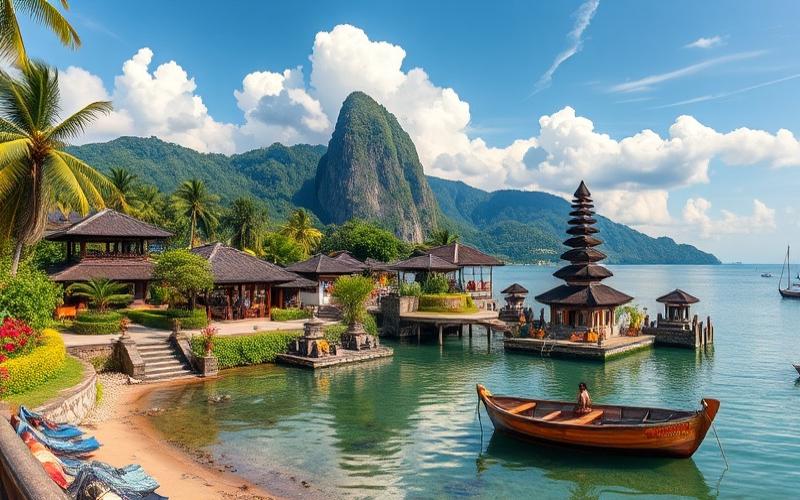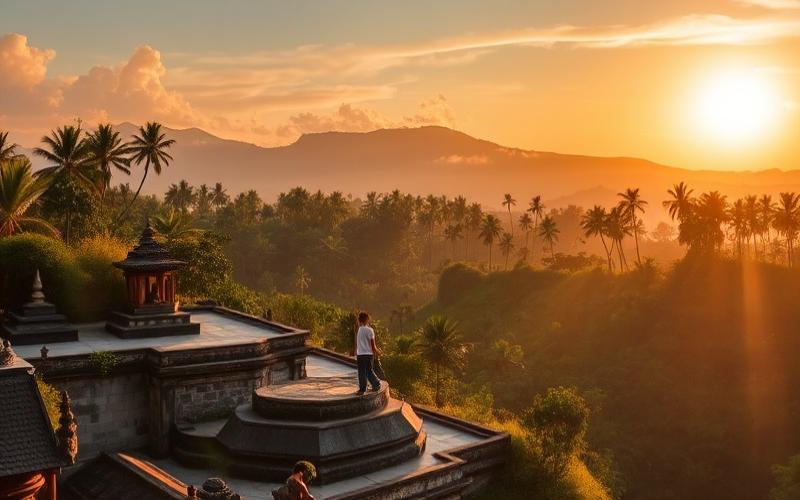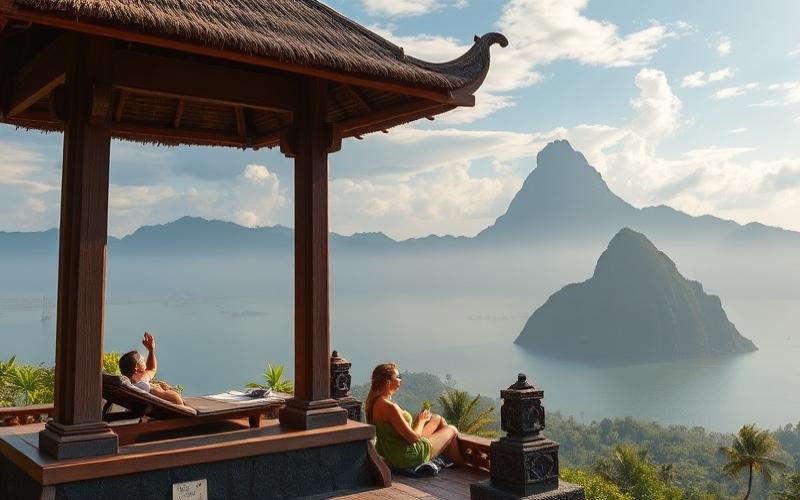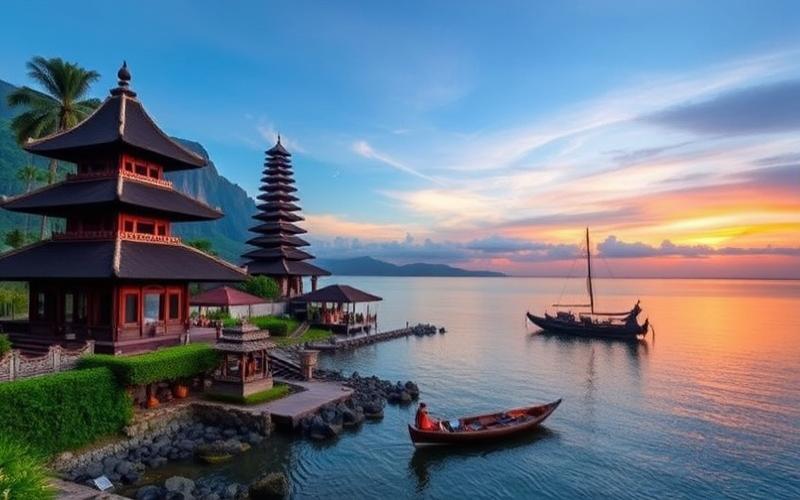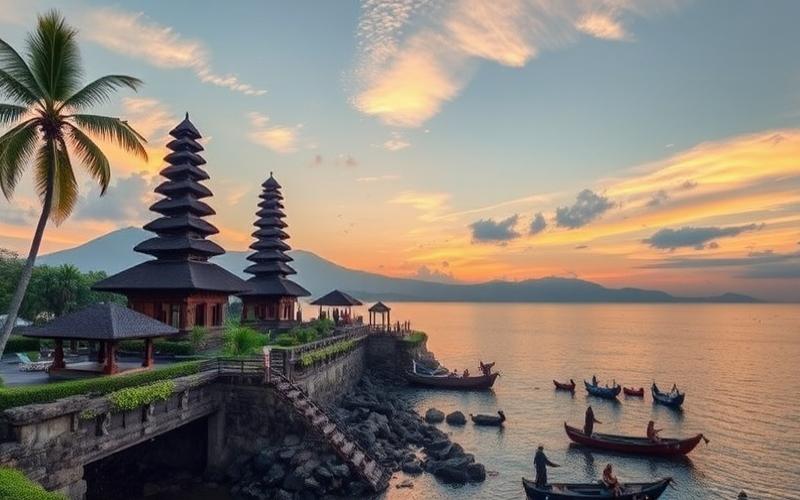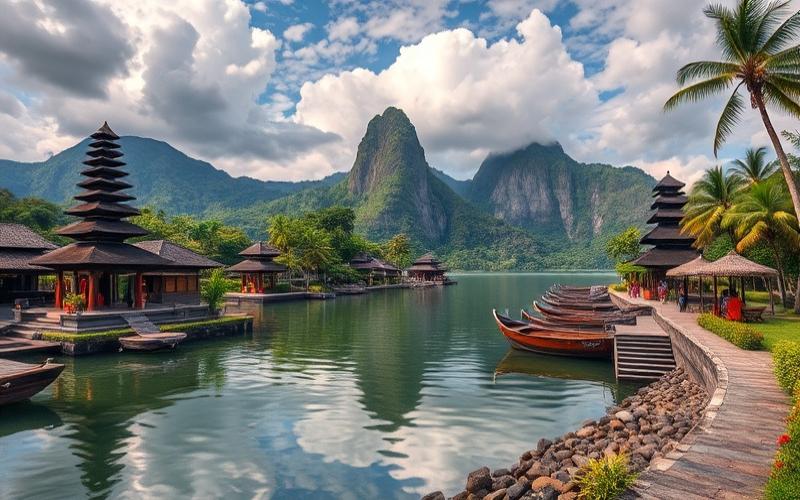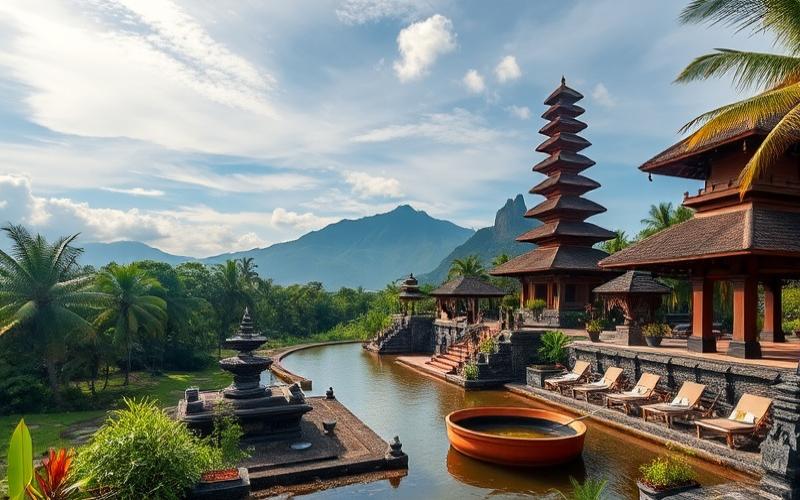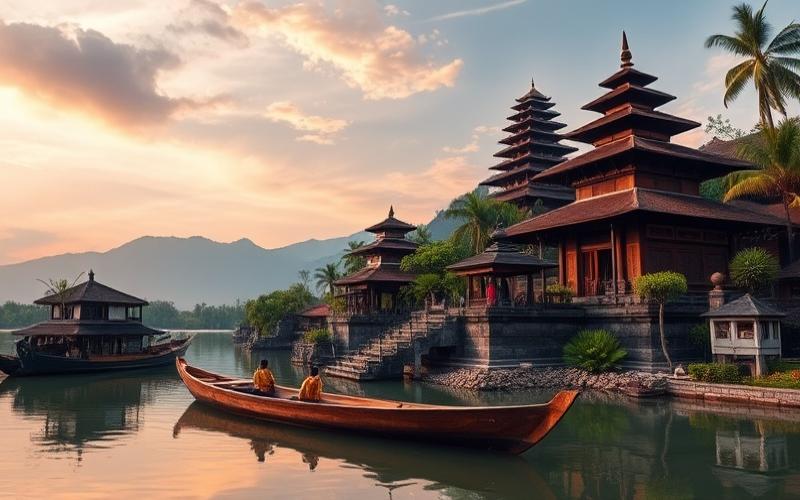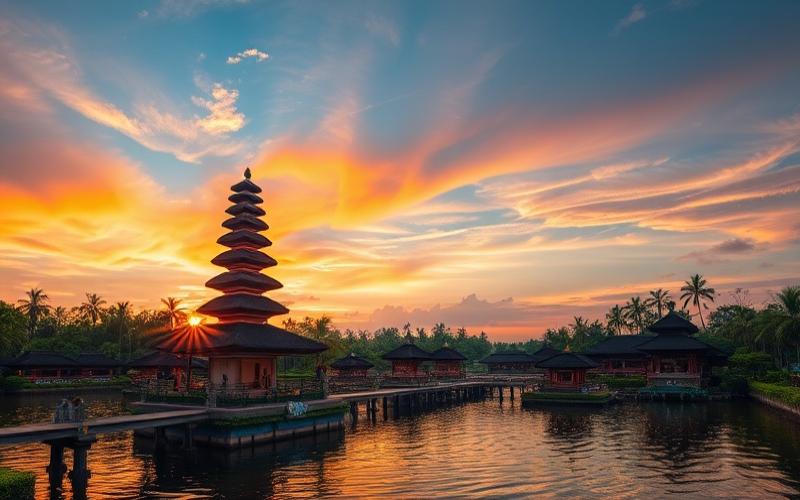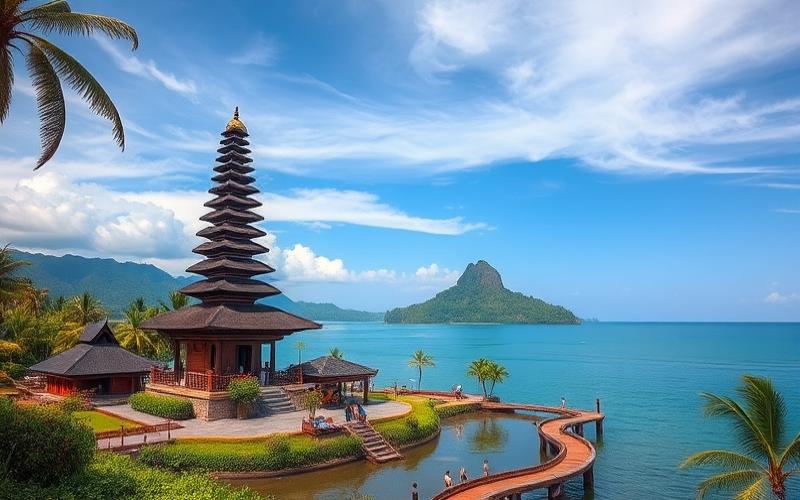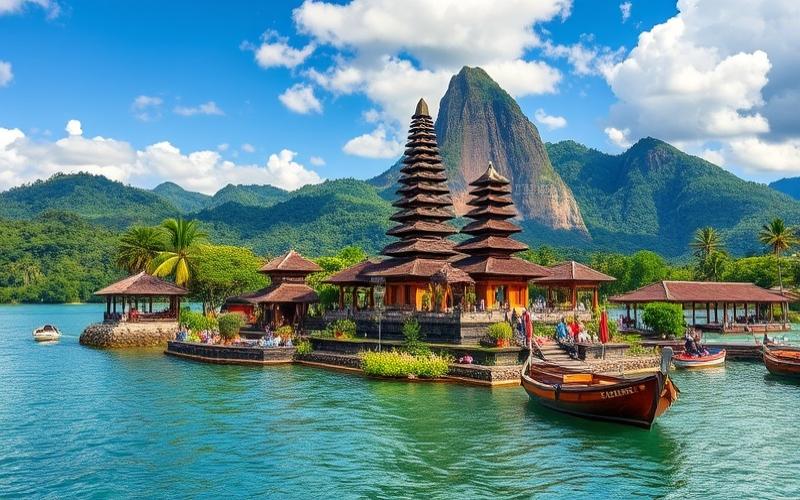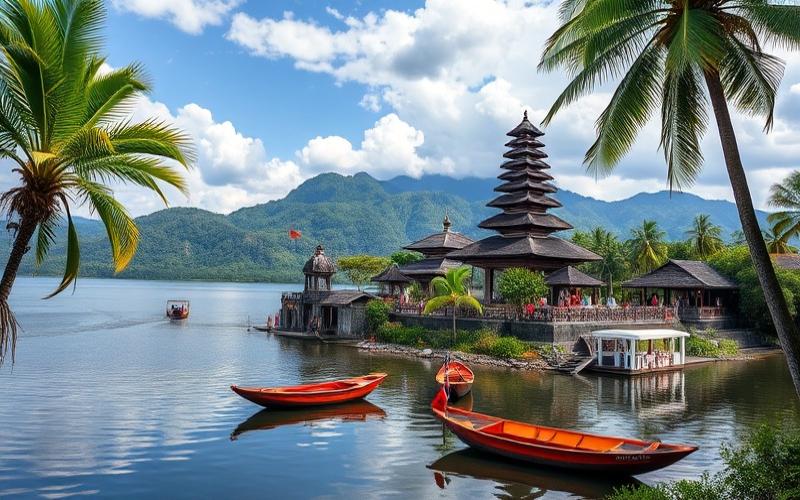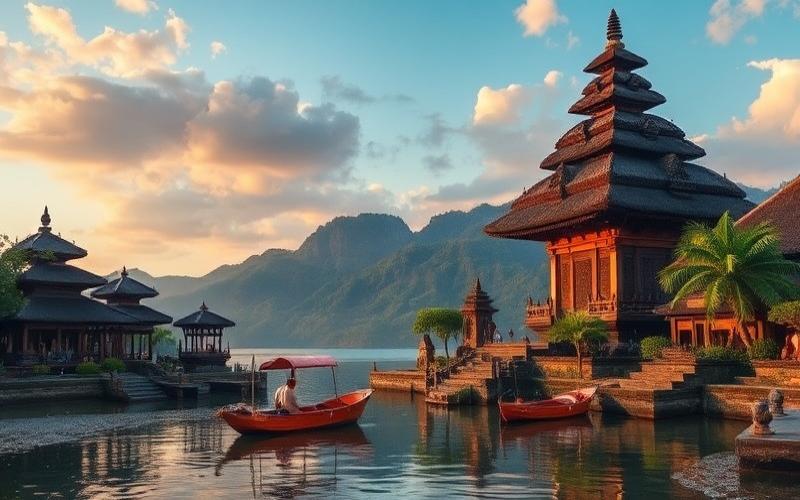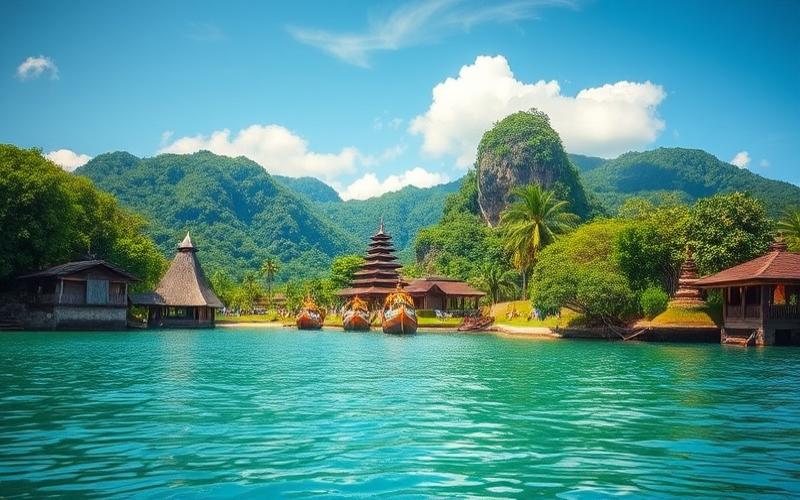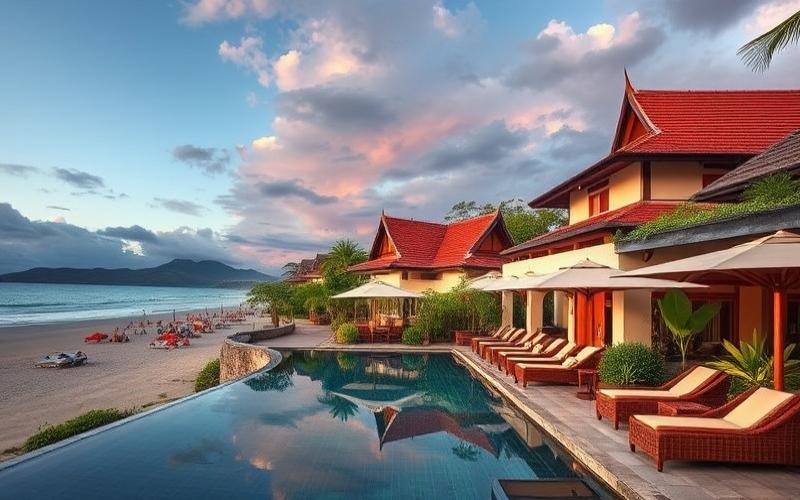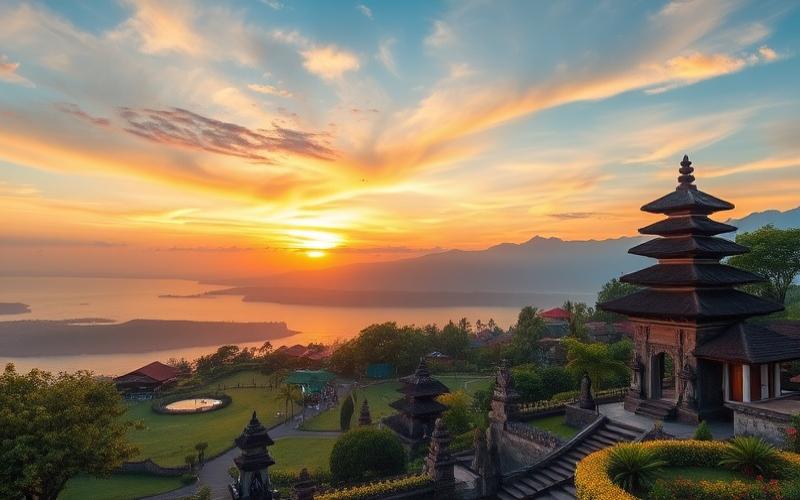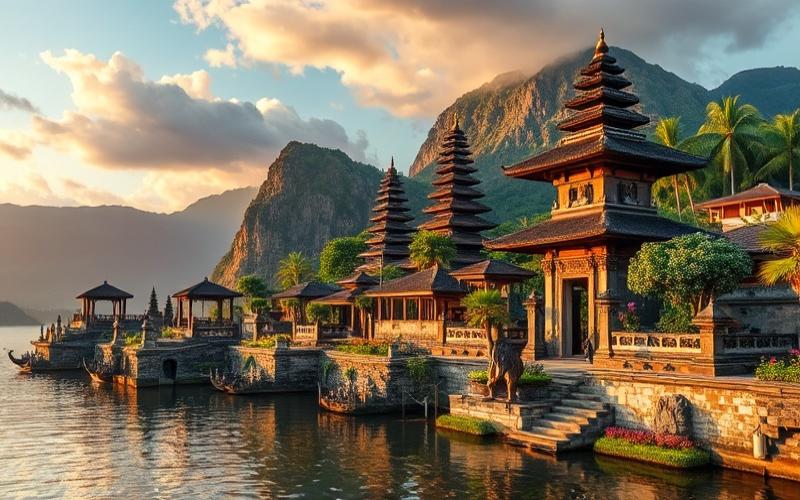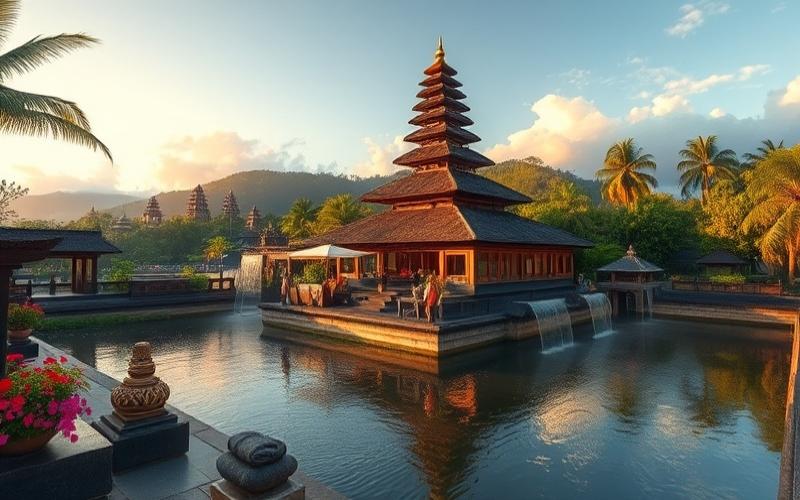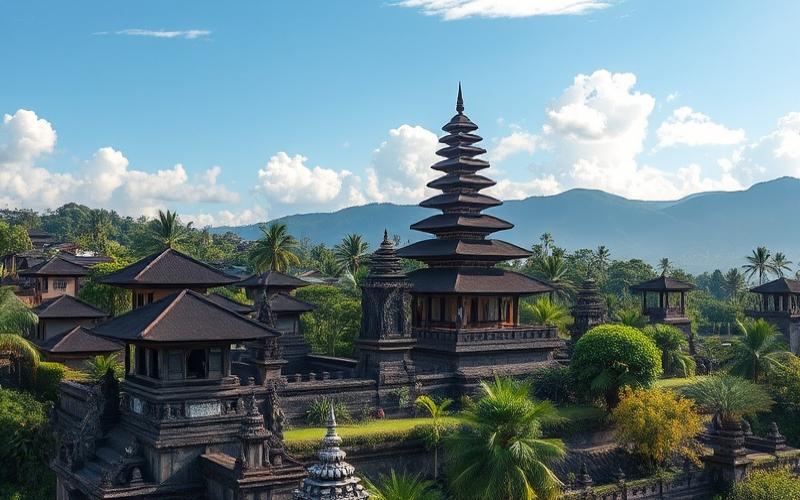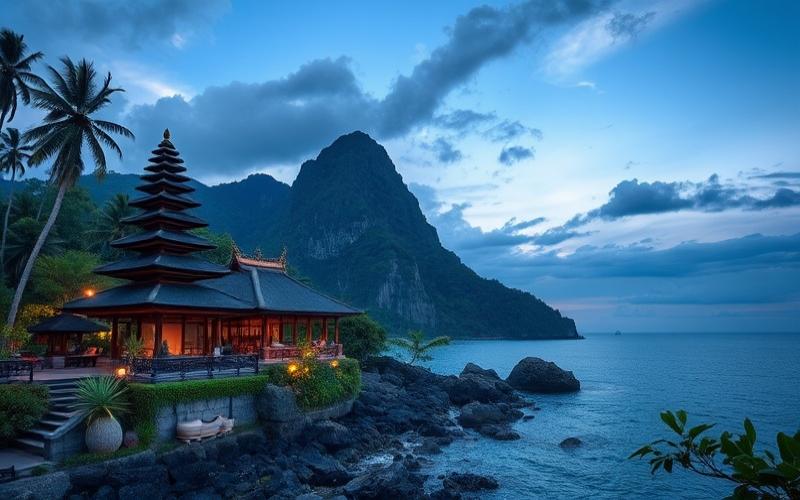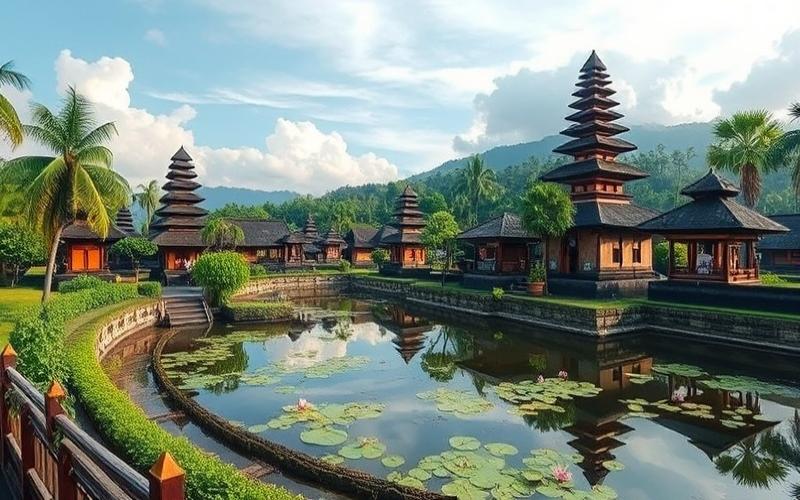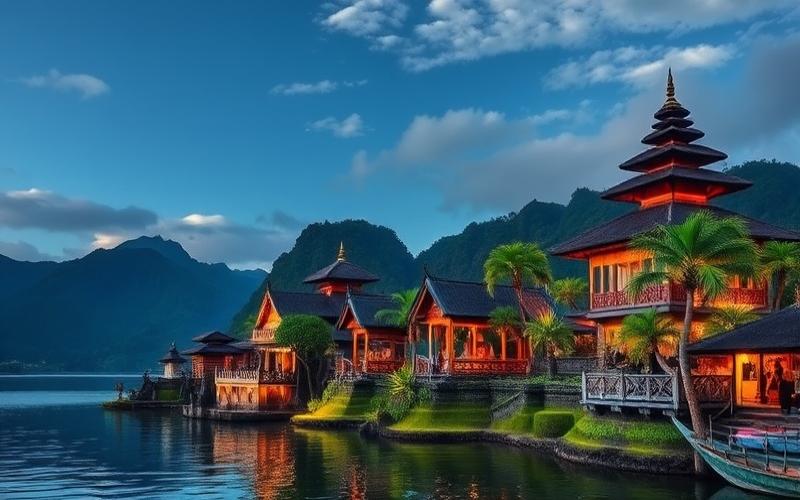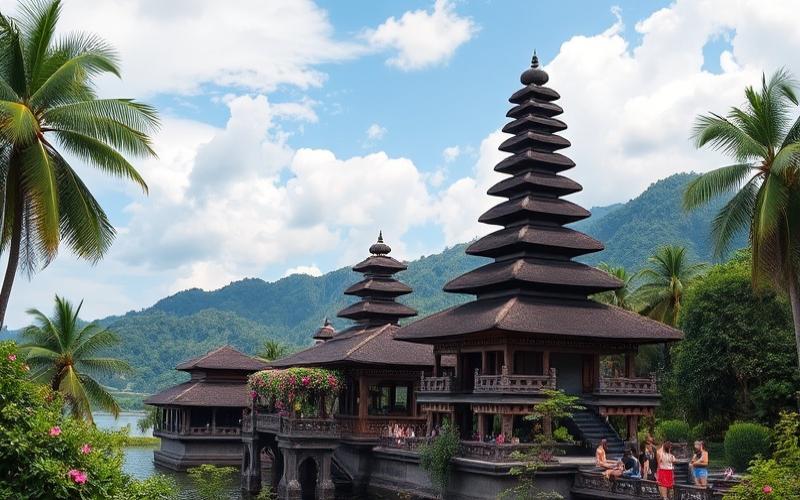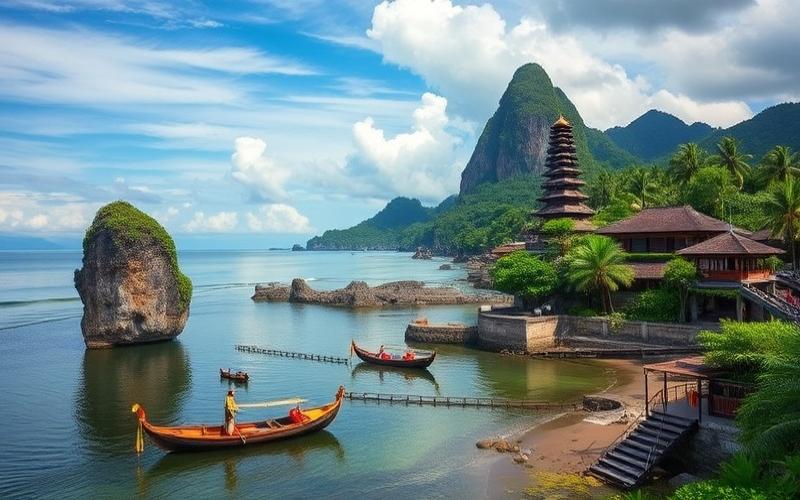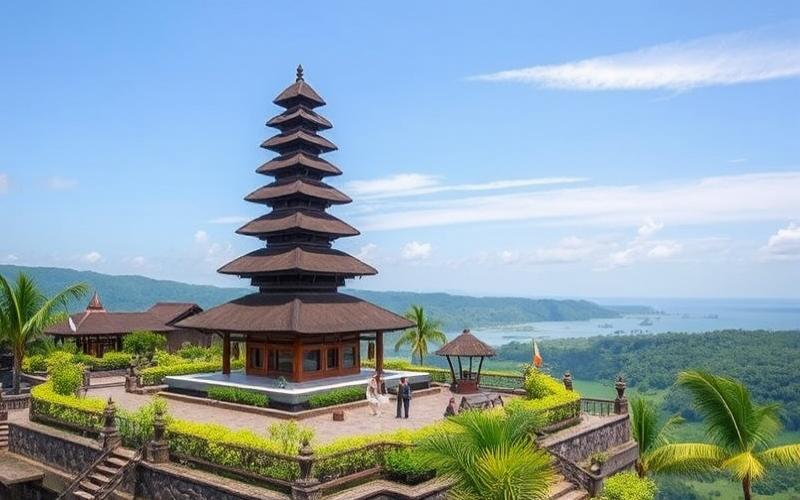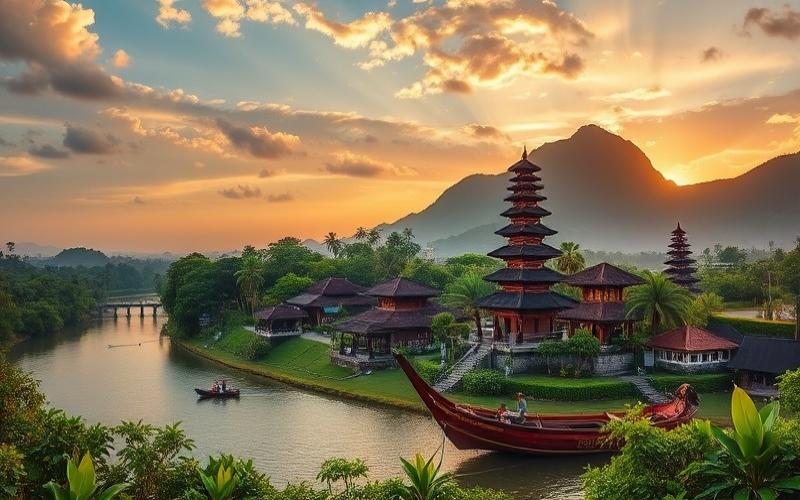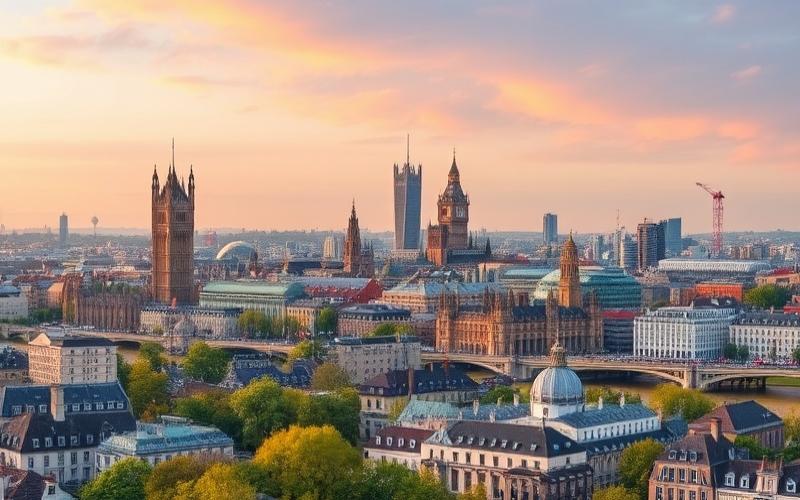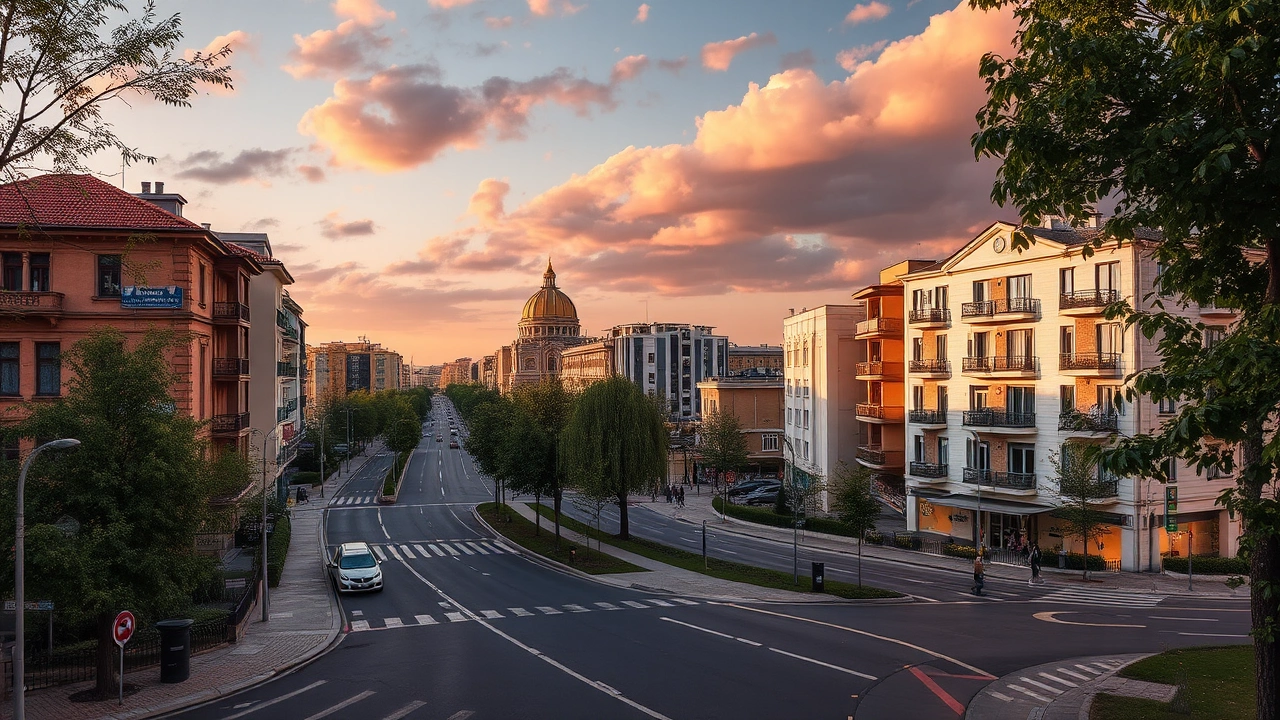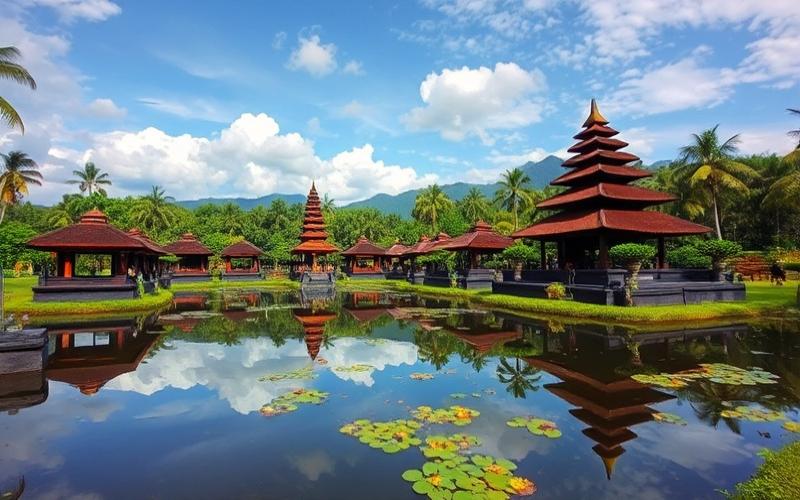
 Published on and written by Cyril Jarnias
Published on and written by Cyril Jarnias
In a global context where responsible travel and returning to roots are attracting more and more people, investing in Bali’s authentic villages appears as a promising opportunity by 2025. Known for its picturesque landscapes and rich culture, the Indonesian island offers unique real estate development potential, combining sustainability and authenticity.
The emergence of new tourism trends and growing appeal for immersive experiences make these small pearls of tranquility particularly sought-after, offering both financial returns on investment and positive contributions to local communities.
While major cities may lose their appeal, these preserved destinations become not only havens of serenity but also strategic locations for those seeking to align their financial ambitions with their personal values.
Highlighting the Hidden Treasures of Balinese Villages
Balinese villages hold genuine hidden treasures that captivate with their cultural, historical, and natural richness. These preserved places offer an authentic immersion into the soul of Bali, far from typical tourist circuits, and represent unique potential for investors looking to combine profitability with positive impact.
Unique Cultural Elements:
- Traditional Crafts: Tenganan is renowned for its handwoven gringsing fabrics made using ancestral methods. These rare textiles are rich with symbolism and showcase craftsmanship passed down through generations.
- Vibrant Festivals: The village annually hosts the Mekaré-kare festival (pandan leaf war), where residents celebrate their heritage through unique rituals that attract tourists seeking authenticity.
- Harmonious Architecture: Penglipuran is famous for its perfectly preserved traditional urban planning, its bamboo-aligned houses, and its flower-adorned streets during Galungan, a major local religious celebration.
Remarkable Historical Heritage:
Trunyan maintains one of the world’s most unique funeral rites: here, the deceased rest in the open air under a sacred tree whose properties neutralize any odor. The displayed skulls testify to a rare pre-Hindu tradition.
Oral tradition remains very much alive: each village has its own founding myths and carefully preserves a distinct identity recognized throughout the island.
Preserved Natural Landscapes:
Centuries-old terraced rice fields surrounding Tenganan or Penglipuran offer a pastoral panorama ideal for relaxation as well as eco-tourism projects.
Primary forests around Trunyan invite responsible hiking while the proximity to Lake Batur enhances ecotourism while respecting local biodiversity.
| Village | Cultural Asset | Historical Element | Natural Landscape |
|---|---|---|---|
| Tenganan | Gringsing & Mekaré-kare festivals | Ancient Bali Aga culture | Rice fields & hills |
| Penglipuran | Galungan religious festivals | Traditional urban planning | Dense forest & pure air |
| Trunyan | Unique funeral ritual | Pre-Hindu practices | Lake Batur & virgin forest |
Benefits for Investors and Local Communities:
- Real estate appreciation through thoughtful development of typical accommodations or eco-lodges integrated into the local landscape.
- Creation of income-generating activities (craft workshops, cultural or ecological guided tours) directly benefiting residents while building loyalty among clients sensitive to authenticity.
- Preservation of tangible heritage (restored ancient temples) as well as intangible heritage (safeguarded rituals), ensured through balanced partnerships between private stakeholders and local authorities.
Sustainable Growth Opportunities:
- Promotion of slow tourism limiting tourist flow while maximizing its added value on-site
- Financial support for ecological restoration (reforestation around Lake Batur…) combined with environmental awareness
- Active support for local artisans enabling intergenerational transmission
Investing in these villages thus means not only preserving what makes Bali profoundly unique but also actively participating in the harmonious development of a territory where authenticity rhymes with shared prosperity.
Concrete Examples:
*Attending the Pandan Leaf War in Tenganan*, *staying with locals during Galungan in Penglipuran*, *exploring the ritual site under Trunyan’s sacred banyan tree*, are all unforgettable experiences that reinforce the timeless charm of these villages—essential drivers of responsible tourism growth focused on tomorrow.
Good to Know:
Balinese villages are filled with hidden treasures that attract investors seeking authenticity and charm. Ancient temples like Pura Lempuyang offer a glimpse into Balinese history, while cultural festivals such as Galungan celebrate local traditions. Preserved natural landscapes, for example the UNESCO World Heritage-listed Jatiluwih terraced rice fields, promise a unique living environment. Investing in these villages not only provides sustainable growth benefits but also contributes to preserving cultural and natural riches. By participating in local development, these investments support communities while respecting ecological balance, making these opportunities even more attractive for investors concerned with positive impact.
Reasons to Invest in Rural Real Estate in Bali
Bali stands out for its unique cultural and natural appeal, where the beauty of rural landscapes, composed of terraced rice fields like those in Jatiluwih and Tegalalang, coexists with iconic temples such as Besakih or Tirta Empul. The preservation of local traditions is evident in remote villages where religious ceremonies, crafts, and arts are passed down through generations.
Rural areas attract a growing number of visitors seeking authenticity: ecotourism is gaining ground around West Bali National Park or in mountainous regions near Mount Batur. This tourism growth has a positive impact on local communities:
- Creation of direct jobs (guides, homestays)
- Enhancement of local agricultural products
- Support for community initiatives for cultural and environmental protection
Attractive rural property prices represent a notable opportunity. Compared to Ubud or Seminyak where real estate is expensive, the cost per square meter remains much more affordable in remote villages close to major natural sites:
| Area | Average Price per m² (€) | Growth Potential |
|---|---|---|
| Urban (Ubud) | 1,800 – 2,500 | Limited |
| Rural (Jatiluwih/Tabanan) | 700 – 1,200 | High |
Growing interest in authentic and sustainable experiences accentuates this future appreciation trend.
Recent investment in infrastructure—improvement of secondary roads connecting rural interiors to main arteries, development of eco-friendly tourist facilities—further encourages this movement. Green tourism is becoming an economic driver: eco-friendly accommodations, guided nature tours around Menjangan National Park, or immersive stays help energize these territories while preserving their integrity.
Key Takeaway
The enduring cultural assets combined with exceptional nature make Balinese rural areas a privileged territory for those seeking an authentic setting to invest sustainably while supporting balanced local development.
Good to Know:
Investing in rural real estate in Bali offers numerous advantages, particularly due to the island’s unique cultural and natural appeal. The enchanting rural landscapes and preservation of local traditions make it a prized destination, while tourism in these remote areas is expanding rapidly, bringing positive impact to local communities. Rural property prices remain attractive compared to urban zones, and their value could increase as interest in authentic and sustainable experiences grows. Furthermore, recent investments in transportation infrastructure facilitate access to these regions, while the development of green tourism and ecotourism offers interesting future economic prospects.
Discovering Bali’s Authenticity and Unique Heritage
Bali attracts investors through the richness of its history, marked by Balinese Hinduism, ancestral rites, and unique family transmission of cultural heritage. Sacred dances, religious ceremonies, and traditional architectures give the island a distinctive character that appeals to those seeking authenticity.
Villages such as Ubud, Pererenan, or certain rural areas selected by agencies like Bali Coconut Living are recognized for their commitment to preserving local heritage. These communities keep craft traditions alive (weaving, wood carving, goldsmithing) and regularly organize traditional festivals that energize economic life while enhancing Balinese craftsmanship.
| Village | Cultural Specificities | Investment Opportunities |
| Ubud | Artistic and spiritual center | Heritage villas, ecological projects |
| Pererenan | Authentic village life | Eco-responsible buildable land |
| Various rural areas | Living traditional crafts | Traditional properties to restore |
Local crafts and festivals play a central role: they stimulate sustainable cultural tourism and create direct employment in villages. This dynamic fosters a strong economic fabric around environmentally and heritage-respectful practices.
Cultural authenticity thus constitutes a major asset for any investor wishing to engage in a sustainable approach: it guarantees not only market differentiation but also strong appeal among travelers seeking genuine experiences. Agencies like Bali Coconut Living specifically bet on this authenticity to offer carefully selected properties in these preserved villages; their 15% annual growth illustrates the increasing success of a model focused on sustainability.
Local initiatives actively encourage heritage conservation: restoration of typical habitats using local materials or support for organizing major cultural events. These efforts further enhance the attractiveness of responsible real estate investments.
Several testimonials emphasize that these investments have not only economically revitalized certain villages but also relaunched entire local cultural dynamics:
“Thanks to our real estate project centered on Balinese tradition, we’ve seen the revival of craft workshops and community festivities; this has had a positive impact both for our returns and for local development” – Investor who collaborated with Bali Coconut Living
By choosing these unique places where living history, flourishing craft practices, and active heritage preservation policies converge, investors thus benefit not only from sustainable financial returns but also participate in actively safeguarding the true Balinese spirit.
Good to Know:
Investing in Bali’s authentic villages offers a unique opportunity to preserve its rich cultural heritage while making lucrative investments. Villages like Ubud and Penglipuran captivate with their age-old traditions, such as Balinese dances and shadow puppetry, which constitute major attractions for investors. Local crafts, with their famous batik patterns and wood carvings, play a crucial role in economic development due to growing demand for authentic products. Traditional festivals, like Galungan and Kuningan, strengthen social fabric and attract visitors worldwide, thereby stimulating the local economy. Heritage preservation through government initiatives provides a stable framework for long-term investments, ensuring that Bali’s authenticity remains intact. Examples of successful investments include supporting ecotourism development in Tegallalang, which revitalized the region while promoting respect for local traditions.
How Investment Can Transform Bali’s Villages
Investment in Bali’s villages generates major economic and social impacts, particularly by stimulating local job creation and improving infrastructure. The development of infrastructure such as roads, sanitation systems, or electricity access often accompanies these investments, thereby enhancing local quality of life.
Direct Economic and Social Impacts:
- Job creation in construction, tourism, agriculture, and crafts.
- Development of local skills through specific training (sustainable hospitality, modern agricultural management…).
- Increase in local purchasing power and diversification of income sources.
- Improvement of public infrastructure (local transportation through the Balinese LRT project or new national highway).
Potential Initiatives by Sector:
| Sector | Possible Initiatives | Concrete Examples |
| Sustainable Agriculture | Organic farming cooperatives; permaculture training | Ecological agricultural projects in rural Thailand or Lombok |
| Eco-tourism | Integrated eco-lodges; nature/culture tours | Eco-retreats in Tabanan; eco-lodges in Vietnam |
| Local Crafts | Shared workshops; artisan e-commerce platforms | Fair trade craft programs on Java island |
In the sustainable tourism sector for example, the multiplication of eco-lodges respectful of their environment—using local materials and renewable energy—attracts an international clientele concerned about their impact. These structures often integrate communities through craft workshops or guided tours operated by the residents themselves.
Similar projects have emerged elsewhere:
- In rural Thailand: cooperative development around organic rice with fair trade labeling.
- In Vietnam: ecotourism circuits directly involving ethnic minorities to ensure local economic benefits.
- In Lombok (Indonesia): agro-ecological initiatives coupled with training for young farmers.
Challenges Encountered & Ethical Considerations
- Risk of acculturation if projects don’t respect village traditions and rhythms.
- Possible increase in living costs excluding some historical residents.
- Imperative need for participatory governance to avoid external appropriation or superficial “greenwashing.”
To maintain cultural authenticity while promoting balanced development:
It is essential that every initiative be conceived with—then validated by—local communities so they remain holders of both the meaning and benefits related to the transformations undertaken.
Collaborative Perspectives
Success depends on close collaboration:
- Private investors providing initial capital & technical expertise
- Indonesian government facilitating administrative procedures & ensuring legal framework
- Village communities co-deciding priorities & ensuring daily management
Hybrid public/private/community models are those that today offer the best guarantees of lasting positive impact in Bali as elsewhere in the emerging rural world.
Good to Know:
Investing in Bali’s villages can generate significant economic and social impacts, particularly through local job creation and infrastructure improvement. For example, the success of sustainable agriculture initiatives in Ubud, aimed at promoting environmentally friendly techniques, has not only strengthened the local economy but also preserved the island’s agricultural heritage. Furthermore, eco-tourism and local crafts represent key opportunities, as in Munduk, where collaborative programs between private investors, the Indonesian government, and local communities have energized the sector while respecting cultural traditions. However, it’s crucial to address challenges related to maintaining cultural authenticity, ensuring that development doesn’t erode these villages’ unique identity. An ethical and collaborative approach among all stakeholders is essential to guarantee positive and lasting impact, drawing inspiration from successful project models in other similar Asian regions.
Disclaimer: The information provided on this website is for informational purposes only and does not constitute financial, legal, or professional advice. We encourage you to consult qualified experts before making any investment, real estate, or expatriation decisions. Although we strive to maintain up-to-date and accurate information, we do not guarantee the completeness, accuracy, or timeliness of the proposed content. As investment and expatriation involve risks, we disclaim any liability for potential losses or damages arising from the use of this site. Your use of this site confirms your acceptance of these terms and your understanding of the associated risks.

